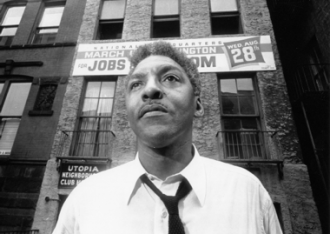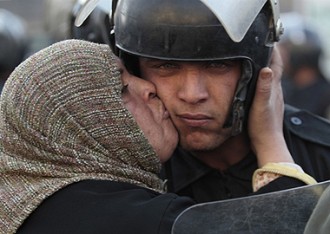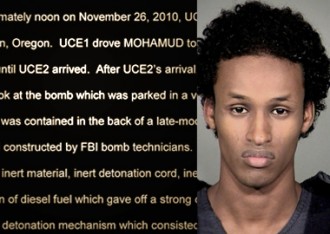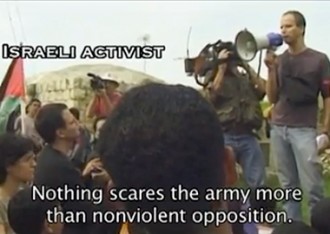How to Slow Down the Rush to War: What Obama Should Do About Syria
Time to take responsiblity—peacefully—for global well-being.
Read MoreTime to take responsiblity—peacefully—for global well-being.
Read More
Why don’t we hear about nonviolence from the pulpit? There is a complex theology behind the Gospel message of activist, transformative nonviolence that is easy for a homilist to set aside in favor of “God-loves-you!” Sunday messages that demand little from believers beyond robust self-esteem and a vague acceptance of God’s expectation that we generally do right by others. Thus, dusted off during Lent and the Easter season, the premodern language of sin, suffering, sacrifice, and salvation, as Marcus Borg has argued and Pew researchers have tracked, are poorly understood by Christians themselves.
Read More
As NAACP President Ben Jealous told the Times last week, “it’s become clear that, just as Bayard Rustin admonished us all, that we would either stand together or die apart.”
“Who admonished us?” readers must have asked. Bayard Rustin’s role as advisor to Dr. Martin Luther King Jr. and as organizer of the 1963 March on Washington for Jobs and Freedom (where King delivered his “I Have a Dream” speech) should have assured his place in American social and political history. But Rustin has long been denied his proper place—largely because he was an openly gay man.
Read More

The Times managed to find a Gandhi scholar who would argue that the greatest hero of radical resistance would endorse the critics of Occupy Wall Street.
Read More
While many books will no doubt be written about the momentous events that are unfolding in the Middle East, many of them will doubtless leave out the prehistory. By exploring the rich tradition of nonviolent resistance in the Muslim world—from Palestine and Pakistan, to Kosovo and the Maldives—Amitabh Pal dispels the oft-repeated misconception that what we are witnessing in the Arab Spring is without precedent.
Read More
By repeatedly asking what was in his heart, the FBI seems to have, not only sought to establish intent, but assumed that Muslim militancy is directly related to religion. Moreover, its operative assumption about religion was an implicitly Protestant one which conceived religion as an inward experience (faith) rather than the more Islamic conception of religion as the moral standard by which people ought to be judged. While the FBI was trying to ascertain the intent of Mohamud’s heart, Mohamud himself, by FBI’s own account of events, appears to have been preoccupied with creating sensational headlines.
Read More
The positive reception of Budrus in the U.S. says a lot about the political climate today. The right-wing “pro-Israel” movement is going through a tough time. It has always built its public appeal on one simple narrative: Israel wants peace, but it must fight to ward off implacable violence from its enemies. Anything Israel does is justified because it’s in self-defense.
Read More
When it comes to peace activism, holding signs might not always be enough, says sociologist Sharon Nepstad. In this interview she explains why, and talks about the unique historical role of religion in nonviolent protest.
Read More
In light of a recent finding that evangelical Christians are more likely, statistically, to support the use of torture, a scholar proposes an approach to nonviolence based on the teaching of Christianity’s first theologian.
Read More
A scholar of nonviolence shares his struggle with Jewish identity during a time of escalating conflict and violence in Israel.
Read More